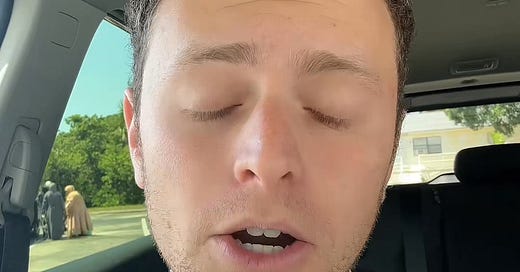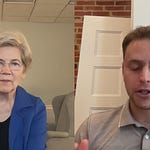We have some extremely concerning news. The Trump administration is dismantling critical press protections put in place during the Biden era—protections that were designed to safeguard journalists and their sources from government overreach. The new directive, announced by Attorney General Pam Bondi in a memo circulated, opens the door for federal investigators to subpoena journalists and gain access to their phone and email records with far greater ease.
As a journalist, it appears as though the threat to our work is as great as ever. I won’t stop working to pursue the truth. Your support makes it possible. Please consider subscribing today:
This reversal signals a sharp departure from the Biden-era policy, which made it exceedingly difficult for federal officials to surveil or target journalists in connection with leak investigations. Those protections were implemented after a series of bipartisan outcries over press freedom and government transparency.
Now, under Trump’s renewed leadership, the Justice Department appears poised to wield its power in a far more aggressive and politicized manner.
Bondi justified the policy shift by claiming the previous rules were “abused,” allowing officials to leak information to what she called “media allies” without consequence. “The Justice Department will not tolerate unauthorized disclosures that undermine President Trump’s policies, victimize government agencies, and cause harm to the American people,” Bondi wrote in the memo obtained by POLITICO.
But critics warn the consequences of this decision could be dire.
Press freedom advocates and legal experts are sounding the alarm, saying the new policy reintroduces dangerous threats to the First Amendment and risks turning the Department of Justice into a tool for political retaliation. Bondi’s memo quotes recent directives from President Trump that call for investigations into former officials from his first term—an unprecedented move that breaks with long-standing norms aimed at keeping law enforcement free from political interference.
What makes this development particularly dangerous is the chilling effect it may have on journalism and government accountability. If reporters can no longer shield their sources, whistleblowers may stay silent. Corruption may go unreported. And a free press—widely regarded as a cornerstone of democracy—could be diminished under the weight of surveillance and intimidation.
This isn’t just a shift in policy. It’s a warning shot across the bow of independent journalism—and a move that should concern anyone who values transparency, accountability, and the rule of law.
Is this the beginning of a broader crackdown? All signs point to yes. And with Trump back in the White House, those who speak truth to power may find themselves more vulnerable than ever.













Share this post